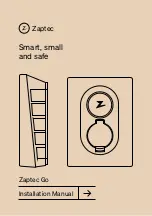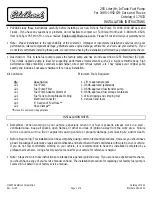
Sulfur Oxides (SOx)
Sulfur oxides consist of various amounts of oxygen and sulfur. Sulfur oxides result from
the burning of lower grades of fossil fuels, such as coal or oil.
Air Pollution
The earth's atmosphere, at or near sea level, consists approximately of 78 percent
nitrogen, 21 percent oxygen and 1 percent other gases. If it were possible to remain in this
state, 100 percent clean air would result. However, many varied sources allow other gases
and particulates to mix with the clean air, causing our atmosphere to become unclean or
polluted.
Some of these pollutants are visible while others are invisible, with each having the
capability of causing distress to the eyes, ears, throat, skin and respiratory system. Should
these pollutants become concentrated in a specific area and under certain conditions,
death could result due to the displacement or chemical change of the oxygen content in
the air. These pollutants can also cause great damage to the environment and to the many
man made objects that are exposed to the elements.
To better understand the causes of air pollution, the pollutants can be categorized into 3
separate types, natural, industrial and automotive.
Natural Pollutants
Natural pollution has been present on earth since before man appeared and continues to
be a factor when discussing air pollution, although it causes only a small percentage of the
overall pollution problem. It is the direct result of decaying organic matter, wind born
smoke and particulates from such natural events as plain and forest fires (ignited by heat
or lightning), volcanic ash, sand and dust which can spread over a large area of the
countryside.
Such a phenomenon of natural pollution has been seen in the form of volcanic eruptions,
with the resulting plume of smoke, steam and volcanic ash blotting out the sun's rays as it
spreads and rises higher into the atmosphere. As it travels into the atmosphere the upper
air currents catch and carry the smoke and ash, while condensing the steam back into
water vapor. As the water vapor, smoke and ash travel on their journey, the smoke
dissipates into the atmosphere while the ash and moisture settle back to earth in a trail
hundreds of miles long. In some cases, lives are lost and millions of dollars of property
damage result.
Industrial Pollutants
Industrial pollution is caused primarily by industrial processes, the burning of coal, oil and
natural gas, which in turn produce smoke and fumes. Because the burning fuels contain
large amounts of sulfur, the principal ingredients of smoke and fumes are sulfur dioxide
and particulate matter. This type of pollutant occurs most severely during still, damp and
cool weather, such as at night. Even in its less severe form, this pollutant is not confined to
just cities. Because of air movements, the pollutants move for miles over the surrounding
countryside, leaving in its path a barren and unhealthy environment for all living things.
Summary of Contents for TrailBlazer
Page 1: ......
Page 26: ...Fig 3 Typical body and undervehicle maintenance locations Refer to chart for descriptions ...
Page 29: ......
Page 30: ......
Page 31: ......
Page 175: ...Spring free length check Valve spring squareness check ...
Page 192: ...Front of piston mark ...
Page 361: ...5 3L Engine Except Saab Underhood Fuse Block 2003 2005 Early Production ...
Page 469: ...Removing the outer band from the CV boot Removing the inner band from the CV boot ...
Page 470: ...Removing the CV boot from the joint housing Clean the CV joint housing prior to removing boot ...
Page 471: ...Removing the CV joint housing assembly Removing the CV joint ...
Page 472: ...Inspecting the CV joint housing Removing the CV joint outer snap ring ...
Page 473: ...Checking the CV joint snap ring for wear CV joint snap ring typical ...
Page 474: ...Removing the CV joint assembly Removing the CV joint inner snap ring ...
Page 475: ...Installing the CV joint assembly typical ...
Page 553: ...9 Torque the lug nuts to specification 10 Lower the vehicle ...
Page 556: ...Toe in Frame Misalignment Frame misalignment ...
Page 588: ...Bleeding caliper ...
Page 624: ...Manifold gauge set components Refrigerant recovery recycling station ...
Page 676: ...A C Specifications ...
Page 677: ......
















































